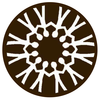Rick Eckley, MA, RSW
Relational Psychotherapy, Narrative Therapy,
Mindfulness-based Psychotherapy Supervision and Clinical Consultation
I am a psychotherapist and clinical consultant who works part time in private practice and part time at the University of Toronto. My work is influenced by relational, narrative and Buddhist perspectives.
Since 1996, I have worked as a psychotherapist privately and in community settings. I offered extensive training and supervision to other psychotherapists as a founding member of the Narrative Therapy Centre of Toronto. And I was a Director of the Practicum Training Program in Psychotherapy at the University of Toronto Counselling and Psychological Services.
My interest in psychotherapy has roots in my undergraduate research in anthropology. Here, my fascination with how people find meaning, creativity and fulfillment fuelled my fieldwork on the religious rituals and community-building practices of southern Spain. My more direct involvement in psychotherapy grew out of time I spent as a psychotherapy client after these studies. This life-changing experience led me to formal psychotherapy training. I began at the Psychosynthesis Institute of San Francisco and then completed a three-year Master’s program in Counseling Psychology at John F. Kennedy University in Orinda, California. Since then, I have continued to give and receive training in relational psychotherapy, narrative therapy, and Buddhist perspectives on psychotherapy. I have also practised Zen, played music and explored the ways art, nature and ritual can enrich and transform life. All of these influences contribute to my understanding of psychotherapy as an improvisational activity where both client and therapist contribute creatively to a process of exploration and change.
In my practice, I strive to be compassionate and collaborative and to nurture these qualities in the people I work with. I want to understand the world through the client’s eyes and work with clients in ways that respect their wisdom. I assume that if we look hard enough, even the most destructive behaviours can be understood as creative efforts to sort out life’s challenges. The work of therapy is to re-direct these efforts in new ways that are more affirming of self and community.
Since 1996, I have worked as a psychotherapist privately and in community settings. I offered extensive training and supervision to other psychotherapists as a founding member of the Narrative Therapy Centre of Toronto. And I was a Director of the Practicum Training Program in Psychotherapy at the University of Toronto Counselling and Psychological Services.
My interest in psychotherapy has roots in my undergraduate research in anthropology. Here, my fascination with how people find meaning, creativity and fulfillment fuelled my fieldwork on the religious rituals and community-building practices of southern Spain. My more direct involvement in psychotherapy grew out of time I spent as a psychotherapy client after these studies. This life-changing experience led me to formal psychotherapy training. I began at the Psychosynthesis Institute of San Francisco and then completed a three-year Master’s program in Counseling Psychology at John F. Kennedy University in Orinda, California. Since then, I have continued to give and receive training in relational psychotherapy, narrative therapy, and Buddhist perspectives on psychotherapy. I have also practised Zen, played music and explored the ways art, nature and ritual can enrich and transform life. All of these influences contribute to my understanding of psychotherapy as an improvisational activity where both client and therapist contribute creatively to a process of exploration and change.
In my practice, I strive to be compassionate and collaborative and to nurture these qualities in the people I work with. I want to understand the world through the client’s eyes and work with clients in ways that respect their wisdom. I assume that if we look hard enough, even the most destructive behaviours can be understood as creative efforts to sort out life’s challenges. The work of therapy is to re-direct these efforts in new ways that are more affirming of self and community.

